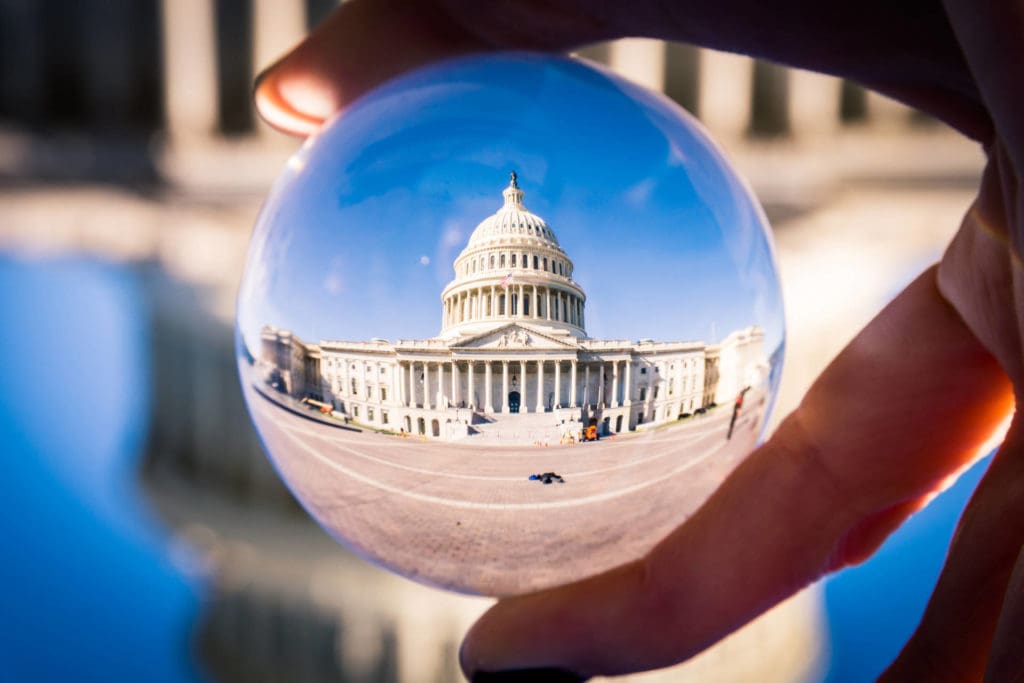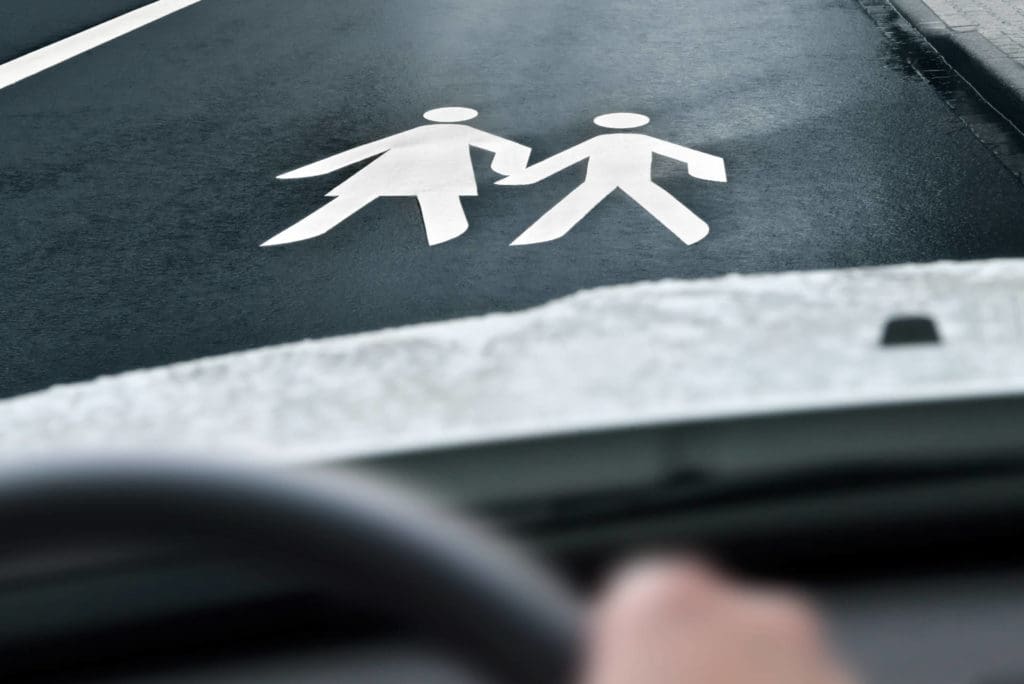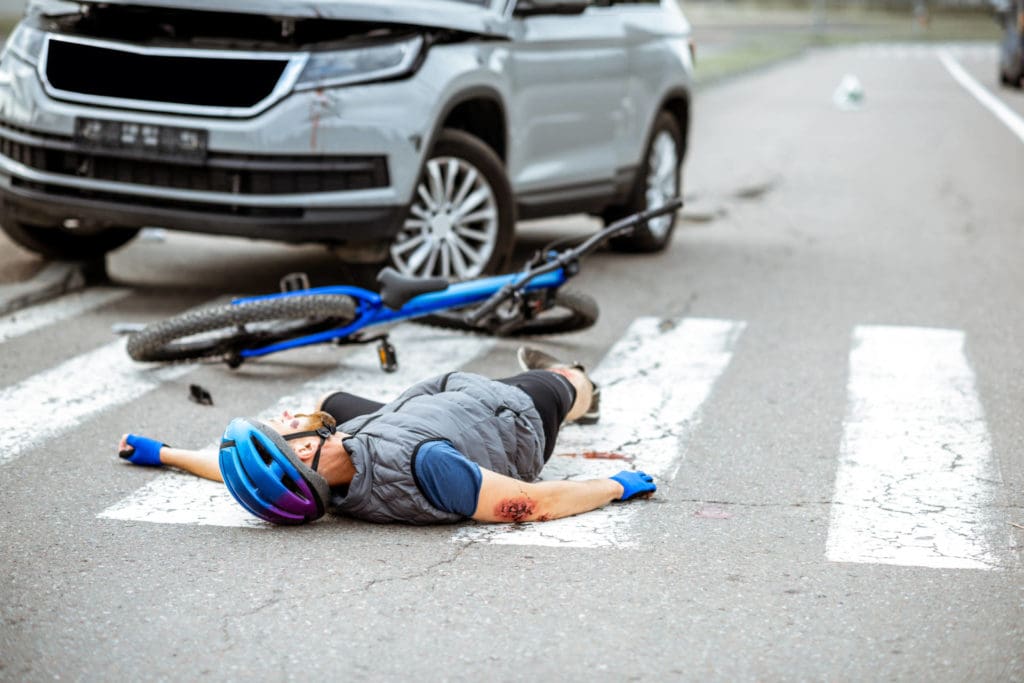Vulnerable Road Users in Washington D.C.: Who’s At Fault in a Car Accident?
Laws are constantly changing just as society “norms” are shifting. In 2020, the Council of the District of Columbia introduced the Vulnerable User Collision Recovery Amendment Act of 2020 (“VUCRAA”). This move in the D.C. law arises from the Motor Vehicle Collision Recovery Act of 2016 (“MVCRA”). The amendment took effect on March 16, 2021, and has expanded the categories of plaintiffs that will fall under the umbrella of this new law feature of Vulnerable Users in Washington, D.C.. But, what does this really mean?
To put it simply, new changes apply for contributory negligence in motor vehicle accidents in Washington, D.C.. The shift is more in favor of comparative negligence for vulnerable users in Washington, D.C.. Contributory negligence is considered “old law” since it has been applied longer than comparative negligence. Moreover, both sides are completely different from each other when determining who is ultimately at fault for a motor vehicle accident. But, how do these two types of negligence work in D.C.?
Differences Between Contributory Negligence And Comparative Negligence
When talking about car accidents, contributory negligence is different from comparative negligence laws. What contributory negligence says is that even if the plaintiff is partially at fault for a car accident, they may not receive any compensation. Maryland, Virginia and Washington, D.C. are some of the few U.S. states and territories that still practice this law. Most states follow the comparative negligence law.
Comparative negligence is opposite from contributory negligence. In this case, all parties involved may share responsibility. Even if a plaintiff is partially at fault, they may still receive compensation. For example, if an injured party is 10% at-fault they may be compensated 90% of what they originally would’ve received if they didn’t contribute any fault to the accident. That’s why it is important to clarify your case with a car accident lawyer that will point you into the right direction.
Some U.S. states follow a little bit of both laws in some circumstances. However most follow comparative negligence when determining who is at-fault in a motor vehicle accident. Comparative negligence hasn’t been around as long as contributory negligence. Nonetheless, many laws are shifting when there seems to be a better resolution. One example of this is the change through the expansion of the Washington D.C. contributory negligence law in 2020. So, how is this related to vulnerable users in Washington, D.C.?
Contributory Negligence For Vulnerable Users In Washington, D.C.
In 2016, the Motor Vehicle Collision Recovery Act (“MVCRA”) was approved for plaintiffs that were pedestrians, bicyclists, or other nonmotorized users of a public highway who are involved in a collision with a motor vehicle. But, on March 16 2021, the Council of the District of Columbia enacted the Vulnerable User Collision Recovery Amendment Act of 2020 (“VUCRAA”). The VUCRAA is meant to protect vulnerable road users. These contributory negligence law changes in D.C., apply to car accidents, and is based on all parties’ relative negligence.
News laws in Washington, D.C. say that if a vulnerable road user or “VRU” is injured in a motor vehicle accident, they may recover in a civil action despite their negligence. However, this does not apply if their negligence was the main cause of the accident or the actions they contributed are more than the combined fault of all defendants involved.
The extra protection of vulnerable road users in D.C. arose from an intersection collision on July 14, 2016. This was the case of Rachael Lipsetts (Plaintiff) VS Louis Gonzalas (Defendant). This legal shift towards modified comparative negligence includes collisions that occur after March 2021. The new D.C. law applies to vulnerable road users only. Therefore, who would be considered a vulnerable road user?
Who Would be Considered a Vulnerable Road User?
The Vulnerable User Collision Recovery Amendment Act of 2020 (VUCRAA) defines the term “vulnerable user” to describe an individual using an all-terrain vehicle, bicycle, dirt bike, electric mobility device, motorcycle, motorized bicycle, motor-driven cycle, non motorized scooter, personal mobility device, skateboard, or other similar device. Moreover, a pedestrian would fall under the term vulnerable road user, as well.
Any vulnerable road user or VRU who is involved in a motor vehicle accident might be entitled to compensation. The contributory negligence law will not apply the same in certain circumstances. For example — as mentioned before —, if the VRU was the main cause of the accident, he or she will not receive compensation for their injuries. Judgement will be left up to the courts, a judge and a possible jury. Nonetheless, extra protection for VRUs is a step towards Washington, D.C. countering contributory negligence laws.
Vulnerable road users have a higher chance at fatal accidents than those in a vehicle. They have less protection; no air bags or safety features that a standard car has. Implementing this law is a step towards comparative negligence. In the future, Washington, D.C. laws may become more comparative rather than contributory. Contributory negligence has been applied in the DMV area for many years. Therefore, if you’re unsure about how a law may affect your case, contact an attorney.
Does Washington, D.C. Countering Contributory Negligence Affect Your MVA Injuries?
D.C. laws may have changed in 2020. However, if you live in the DMV area, keep in mind that Maryland and Virginia have their own set of laws and shifts may occur in other states over time. Circumstances depend on your accident and the location of the accident. As a vulnerable user in Washington, D.C., your case might be positively or negatively impacted by the Vulnerable User Collision Recovery Amendment Act of 2020 (VUCRAA).
Learn More About Vulnerable Users In Washington, D.C.
Follow us and read our future blogs to stay up to date on the latest changes in Maryland, Virginia and Washington D.C. If you are unsure whether shifts in Washington, D.C. laws affects your case, ask a knowledgeable attorney: 202-933-1918.




